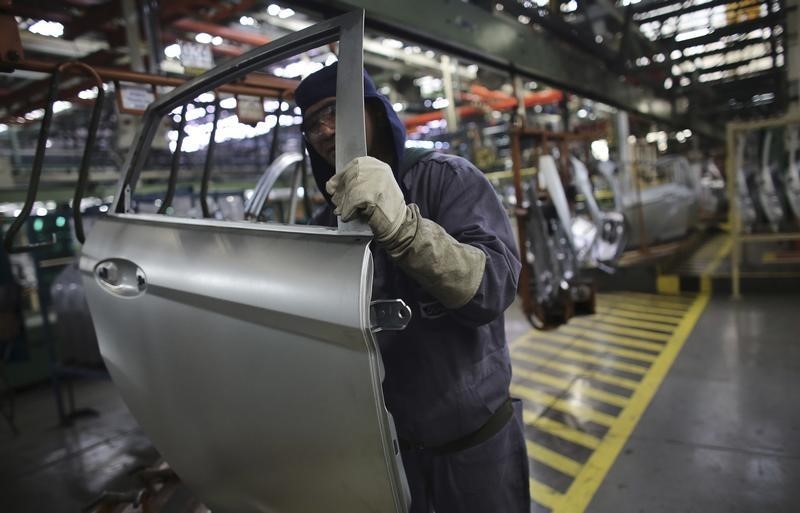BofA warns Fed risks policy mistake with early rate cuts
Investing.com - U.S. President Donald Trump’s aggressive trade agenda may bring some manufacturing jobs back into the country, although the scale of the reshoring is likely to be limited, according to analysts at Capital Economics.
Trump has argued that his move to slap heigthened duties on a range of trading partners will help to bolster domestic job growth in the manufacturer sector, which has seen a multi-year shift in jobs out of the United States.
In a note, the strategists led by Thomas Ryan flagged that the past three presidential administration’s prior to Trump’s second term in the White House have all "attempted and failed" to enhance job reshoring. The latest effort, made through the expanded use of tariffs, will "be no different," the analysts said.
The analysts suggested that some segments of manufacturing -- such as automotive and pharmaceutical production -- appear to be more conducive to reshoring and could see a boost from the levies. In both cases, capacity utilization is relatively low, meaning there are fewer immediate production constraints, they noted, adding that these industries are also not directly competing with "ultra-low-cost manufacturing locations."
A large share of drug imports are made by subsidiaries of U.S. firms in countries like Ireland, Switzerland and the Netherlands, chiefly for tax reasons, the analysts said. Auto imports also come from a tightly-integrated North American supply chain, "implying that shifting production to the U.S. could occur with relatively limited disruption," they added.
But, on the whole, "a tariff-led approach to attracting foreign manufacturers to the U.S. faces major constraints -- namely, a tight labor market and signficantly lower production costs overseas -- that even the promise of preserving tariff-free access to the U.S. consumer market cannot overcome," they wrote.
Although the tariffs "at the margin" may cause some jobs to come back to the U.S., these structural barriers are seen limiting the scale of reshoring and keeping factory employment well below its late-1970s peak, the analysts said.
